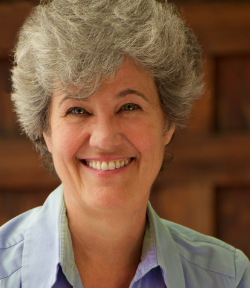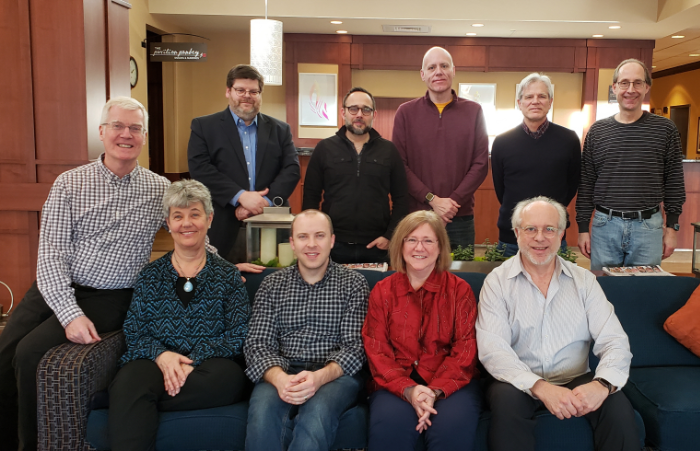
Photo credit: Diane Alancraig Photography
In early February, before the domestic advent of the novel coronavirus and immediately following our midwinter ICSOM Governing Board meeting in Chicago, I traveled to Detroit to attend the SphinxConnect conference. Along with SSD Director Rochelle Skolnick, ROPA President John Michael Smith, and ICSOM President Paul Austin, our primary purpose in attending Sphinx was to participate in the roundtable discussion with the Executive Council of the National Alliance for Audition Support (NAAS).
Launched in 2018, NAAS is an unprecedented national initiative aimed at increasing diversity in American orchestras. With a four-year grant from the Andrew W. Mellon Foundation, and in conjunction with the New World Symphony and SphinxMusic.org, NAAS is able to offer African American and Latinx musicians the opportunity to enhance their audition skills through individual mentoring, audition preparation, and financial aid to assist them in preparation for, and travel to, orchestral auditions.
Supported by an initial $1.8 million grant from Mellon and funding from 74 partner orchestras, (28 of which are ICSOM orchestras), NAAS has to date awarded 261 grants, totaling over $250,000, which cover travel and other expenses for auditions and substitute positions, as well as instrument maintenance grants. Since 2018, 25 musicians supported by NAAS have won a total of 31 auditions or placements with orchestras and ensembles across the country.
At the Executive Council meeting we discussed the continuing desire for egalitarian and unambiguous practices in the hiring and tenure processes of all our AFM orchestras. In alignment with our 2018 ICSOM resolution to preserve the anonymity of candidates, NAAS encourages the use of screens throughout the entire audition process. Looking towards the future, there is a mutual desire to better understand the guiding principles of tenure in order to assist all probationary musicians in a successful outcome. How do we help them navigate their tenure process once the position has been won? In addition, the collection of demographic data from auditions is an important step in understanding outcomes in the context of our ongoing push for diversity, equity, and inclusion (DEI). How will we successfully collate the numbers moving forward in order to measure our progress? Moving forward, we will be exploring answers to these questions that best serve all parties involved.

Photo credit: Laura Ross
The Sphinx Orchestral Partners Auditions (SOPA), which are held every year at the conference, give aspiring musicians the opportunity to play an entirely screened preview audition for representatives from over 35 SOPA partner orchestras, 17 of which are ICSOM orchestras. We heard more than 50 applicants from all instrument groups. Comments were collected electronically to share with candidates, and adjudicators were able to request resumes for possible substitute work or future auditions. This is a valuable ‘trial run’ for the musicians who are just stepping out on the audition circuit. It also gives an opportunity for orchestras—including musicians, management, and conductors—to hear the talent pool that is available.
In March, Rochelle, Mike, and I made our yearly trip to Miami Beach to visit the New World Symphony and educate the first-year fellows on the importance of the American Federation of Musicians in their workplace when they win a union orchestra position. We were joined by Secretary-Treasurer Jeffrey Apana and President Chaz Reskin of Miami Local 655. This year there were about 25 aspiring musicians, many of whom have already had a union affiliation through subbing with ROPA and ICSOM orchestras. (One young woman, Rebecca Olivero, had just won Matt Comerford’s former position in the Chicago Lyric Opera Orchestra!) Each of us spoke briefly about the role of the player conferences, the AFM, and the Local, in relation to the responsibilities that musicians have in the business of running an orchestra. Debbie Newmark spoke about how our national media agreements impact recording and broadcast work. We then spent the next hour illustrating problem-solving by a hypothetical orchestra committee, and holding an open discussion of experiences the fellows had already had working in professional settings. The fellows were interested and ready to participate. I would certainly recommend that as AFM and ICSOM members we all become more available to educate our upcoming colleagues on what to expect at our union workplaces—in addition to what is expected of them.
Depending on the length and severity of this unprecedented viral pandemic, upcoming trips would include an AFM Officer and Player Conference Council (PCC) organizing training in Baltimore in early April, the Locals’ Conferences Council and Player Conferences Council (LCC-PCC) meeting in Las Vegas in June, and of course all our player conferences: Organization of Canadian Symphony Musicians (OCSM) in Regina, Saskatchewan; Regional Orchestra Players Association (ROPA) in Orange County, CA; and our own ICSOM conference in Pittsburgh, PA, in August, hosted by the Pittsburgh Symphony musicians and Local 60-471—all subject to possible cancellation at this point in time.
It is important to remind ourselves of the grace and value that our music brings to our patrons and communities. There is no question that we are in for a rough road ahead. Nevertheless, we will survive. Our orchestras are wrestling with difficult decisions by the hour as this pandemic unfolds. We will continue to affirm the overwhelming power of orchestral music to express our humanity and to lift the human spirit as we move through this difficult time.





